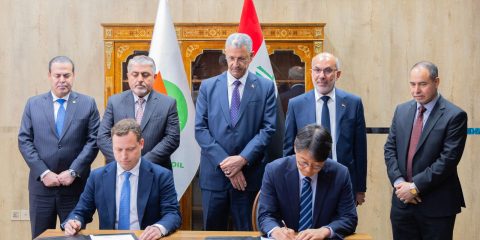New Hope for Iraq?
On May 12, Iraqis will head to the polls for parliamentary elections. These elections are coming at a pivotal moment. Since the Iraqi military announced the defeat of the Islamic State (or ISIS) in December 2017, millions of refugees and displaced people have returned to their homes. In Mosul, students are now back in school and the […]Emma Sky writes for Foreign Affairs:
On May 12, Iraqis will head to the polls for parliamentary elections. These elections are coming at a pivotal moment. Since the Iraqi military announced the defeat of the Islamic State (or ISIS) in December 2017, millions of refugees and displaced people have returned to their homes. In Mosul, students are now back in school and the library that ISIS destroyed is open again. Baghdad feels safer than it has at any point since 2003—shopping malls are doing good business, new coffeehouses are opening, and parks are once again full of families.
Iraq has been at a similar crossroads before. In 2010, after the defeat of al Qaeda in Iraq, the sectarian war appeared to be over and both Iraqis and Americans were hopeful that elections would put the country on the path to sustainable peace. But then it all unraveled. Although the incumbent prime minister, Nouri al-Maliki, who led the State of Law Coalition, did not win the most seats, the Obama administration threw its support behind him. The administration was convinced that Maliki was pro-American and would allow a small contingent of U.S. forces to remain in Iraq when the status of forces agreement between the two countries expired in 2011. They also calculated that maintaining the status quo was the quickest way to ensure that an Iraqi government would be in place ahead of U.S. midterm elections. In practice, however, this decision failed to help Iraq move beyond sectarianism and undermined the notion that change could come about through politics rather than violence.





